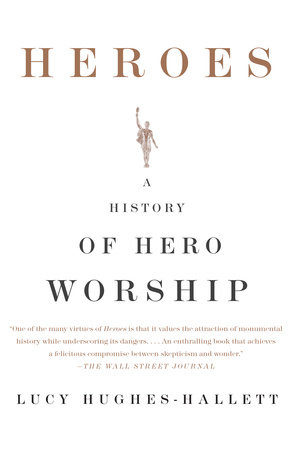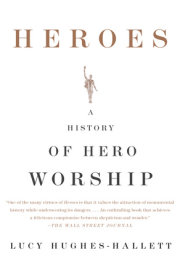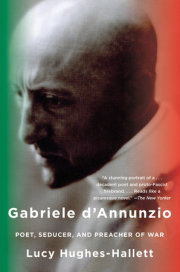I
ACHILLESHomer’s Troy. Achilles, paragon of warriors, consents to enter the fight. Ready for battle in the armor made for him by the smith god Hephaestus, he glitters like the sun. His teeth grind, his eyes flash fire. With a voice as plangent as a trumpet’s he calls out to his immortal horses which no other man can master and one of them replies. Yes, says the beast, this time the team will bring their master safely back to the Greek camp, but the day of his death already hovers near and when it comes, even were they to have the speed and power of the west wind, they would not be able to save him: “You are doomed to die violently, Achilles.” Achilles’ reply is impatient: “Don’t waste your breath, I know, well I know.” With a terrifying yell he sends his chariot hurtling into the front line.
Of all the warriors who fight at Troy Achilles is the only one who is bound to die there. He is not courting risk: he is confronting certainty, and he himself must take responsibility for his own end. His mother, the goddess Thetis, has told him of the two destinies between which he must chose. He can stay peaceably in his father’s house, and if he does so his life will be long and fruitful. He can marry and have children. He can use his wealth and amass more. He can exploit his strength and exercise his intellect. He can inherit and rule his father’s kingdom, enjoying the satisfactions of power and, in due time, the respect accorded to an elder. Or he can fight. If he chooses the latter he will be killed before the war’s end, but first he will win such glory that his name will live in song forevermore.
He chooses death, buying immortality at the cost of his life. And so he becomes the paradigmatic hero, one whose traits and actions are echoed, with infinite variations, in the life stories of subsequent heroes both legendary and actual. His beauty, his swiftness and ferocity, his unrivaled talent for killing his fellow men, his uncompromising commitment both to honesty and to honor and, above all, the pathos of his freely accepted death combine to invest him with an ineffable glamour.
His choice is not easy. There is an alternative. There is another Homeric epic and another hero, Odysseus, who chooses life, and who is so determined to hang on to all that Achilles has renounced that he will lie, cheat, and steal for it. Odysseus is an intriguer, a shapeshifter, a warrior like Achilles but one noted primarily not for his actions but for his words. Achilles’ foil, he repeatedly calls into question the values Achilles represents—both tacitly, by his very existence as one who has taken the opposite path, and explicitly on the several occasions when the two confront each other. In the stories of the heroes who come after them the characteristics of Odysseus and Achilles combine and alternate, but for Achilles himself there can be no half measures, no partial sacrifice. His choice is absolute and tragic. The brilliance with which his prowess and his physical splendor invest him is simultaneously shadowed and intensified by his inconsolable grief at the prospect of his own end, by his pity for his father and mother in the anguish his death must bring them, and his mourning for all that he might have been. Throughout the Iliad Homer imagines him questioning the bargain he has made (and which he can at any moment revoke—three days’ sailing would take him home), asking at each setback, “Was it for this” that he decided to forgo so much? He neither despises life nor belittles death. The former he knows to be worth more than all the wealth in the world. The prospect of the latter is dreadful to him. He describes the underworld habitations of the dead as “dank moldering horrors / that fill the deathless gods themselves with loathing,” and he dwells obsessively on the ignominies to which dead flesh is subject.
If Achilles ever lived (something unlikely ever to be proven) he inhabited a culture separated from us by over three millennia, by tremendous changes in belief, in accepted morality, in technology, in human knowledge. Yet his story, as told by Homer, addresses questions as troubling now as they were when Agamemnon’s host laid siege to Troy. “Like the generations of leaves, the lives of mortal men,” so a Trojan warrior tells a Greek, as they prepare to fight to the death. The Greek has asked to know his antagonist’s identity. The Trojan’s point is that the question is otiose. If each individual is as expendable and replaceable as this year’s leaves, it scarcely matters who anyone might be. Before the fact of mortality any achievement seems futile, any quarrel petty. Death would make nihilists of us all, were it not for the passion with which humans struggle against its reductive, equalizing influence. Achilles will give anything, including life itself, to assert his own uniqueness, to endow his particular life with significance, and to escape oblivion.
A non-Homeric legend tells how Achilles’ divine mother sought to make her baby invulnerable by dipping him in the waters of the Styx, the river over which the souls of the dead were ferried to the underworld. The attempt was unsuccessful. The heel by which Thetis held Achilles remained dry, and it was in that heel that he eventually received his fatal wound. Thetis could not keep her son alive, but he was to find his own way to life eternal, a way closely analogous to the one she tried. Just as she had sought to save him from dying by immersing him in the waters of death’s river, so he cheated death by embracing it, voluntarily dying in his quest for everlasting life.
The Iliad begins with a quarrel over a girl. Two female prisoners have been awarded, by the consent of the full Greek army, one to Agamemnon, king and commander-in-chief, and one to the supreme warrior Achilles, as part of the prize due to each for their exploits in the war. The girl given to Agamemnon is the daughter of a priest of Apollo. The angry god retaliates by sending down a plague. An assembly is called. Reluctantly Agamemnon agrees to return the girl to her father, but demands compensation. If he cannot keep his own prize he will take someone else’s. Achilles, who is not only the paragon of warriors but also the scrupulous guardian of the warriors’ code of honor, protests that to do so would be disgraceful. Agamemnon is defiant. He is the overlord: he will have his way regardless of another’s opinion: “Let that man I go visit choke with rage.” Achilles, beside himself, declares that he will sail for home if Agamemnon perpetrates such an outrage against the code of conduct they all observe. Agamemnon rounds on him and declares his intention of taking Achilles’ own prize, the girl Briseis. For a moment Achilles is ready to kill him, but he is restrained by the voice of wisdom, Pallas Athena. Instead he swears a great oath that he will not fight again in the quarrels of the house of Atreus. Leaving the assembly he goes to his tent, way out at the end of the Greek lines, and there he stays. The rage of Achilles, the passion which is at once so disastrous and so magnificent, and which has earned his immortality, is not the savage bloodthirst which drives him on the battlefield, but the principled fury which keeps him off it.
This argument is far more than a squabble over possession of a slave. It is a dispute over the nature of superiority. Agamemnon tells Achilles he will take his girl “so you can learn just how much greater I am than you.” But is a man’s worth dependent on his power, or on his talent? Is it a function of his social and political relationships, or can an individual possess a value independent of his place in the community? Is Agamemnon, as old Nestor says, the more to be honored “because he rules more men”? Or might Achilles, whose claim to supremacy lies entirely in himself, in his own particular, unsurpassed brilliance, be the greater man? These questions are fundamental. Their answers must affect the conduct both of individuals and of states, determining the relationship between political institutions and the people of whom they are constituted.
Achilles is a divinely created aristocrat, a living demonstration that men are not born equal. The son of a goddess and repeatedly described by Homer as being himself “godlike,” he is innately superior to his fellows. Pindar, the fifth-century bc poet who was classical Athens’ most eloquent upholder of the class system, celebrated his prowess, his “hands like Ares’, his feet like lightning.” In the Iliad he is physically magnificent. When he loses his armor he cannot borrow more from any of his fellow Greeks, for none of them, with the possible exception of Ajax, is as tall as he. The perfection of his body is sublime, the loveliness of his features flawless. His beauty, potently erotic, marks him, like Helen, as a superhuman being. He is “brilliant,” literally: in armor he shines like the sun. He is faster than any of his peers and therefore more deadly in battle. When he chases Hector three times round the walls of Troy, hunting him as a hawk hunts a terrified dove, it is his speed as much as his courage and his strength which makes him invincible. Destined never to grow old, he has a young man’s splendor and a young man’s energy. His emotions are extreme, his responses passionate, his actions devastating. For all these reasons he is unique among the Homeric warriors. Nestor may be wiser, Odysseus more astute and articulate, Ajax stronger in a hand-to-hand fight, but Achilles is, by common consent, the “best of the Achaeans.” Only Agamemnon disputes his right to that title, and he does so on political grounds. He doesn’t claim that he is a greater individual than Achilles. He bases his challenge on the assumption that no individual can count for as much as a community, and that therefore the ruler of that community is, by definition and regardless of his or anybody else’s personal qualities, the greatest person in it. Extraordinary as Achilles’ gifts may be, they are easily outweighed, in Agamemnon’s view, by the latter’s authority as overlord. Agamemnon tells him, “You are nothing to me!”
That would be enough to enrage Achilles, but there is more. Beyond the competition between Agamemnon the king and Achilles the hero—embodiments respectively of the power of the collective and the brilliance of the individual—lies the question of the legitimacy or otherwise of the war in which they are engaged. The disputed women are prizes, not booty. (They are also, of course, human beings whose rights, judged by modern standards, are being grossly violated—but let that be.) They have been awarded to the two men as marks of honor. They are not mere chattels to be passed from tent to tent, any more than a medal awarded for valor is only a coin on a ribbon, or an athlete’s gold cup just an expensive drinking vessel. A prize which has been awarded to one cannot be appropriated by another without its meaning being erased and the symbolic code within which it existed being called into question. In demanding Briseis Agamemnon is acting not like a warrior eager for glory, but like a bandit greedy for loot. In doing so he shames not only himself, but the whole Greek army. In the gruesome setting of the battlefield, a situation where men are all too easily reduced to the level of beasts of prey, or to carrion, it is essential to hold fast to the elusive concept of honor as a talisman against horror and despair. Achilles came to Troy to avenge the insult done to Agamemnon and his brother Menelaus when the Trojan prince Paris abducted Helen, Menelaus’s wife—to protect their honor. But if Agamemnon seizes Briseis then he is an abductor, just as Paris is. The Greeks’ invasion of Priam’s kingdom is revealed to be no more than a predatory attack on a wealthy victim and Achilles is no longer a warrior in a noble cause but the underling of an unprincipled looter. If he dies he will do so ignominiously, in the prosecution of a stupid, brutal war, and the eternal fame for which he hoped will be denied him. As he later tells those who come to implore him to return to the field, there is no point in doing so once Agamemnon has robbed fighting of its meaning. The king’s rapacity has leveled all value, trivialized all achievement. In a world in which the distinction between the noble warrior and the thug has been erased, “the same honour waits for the coward and the brave. They both go down to death.”
When it becomes clear that the Greeks will continue to obey Agamemnon, Achilles turns his back on them, becoming, like so many subsequent heroes, a voluntary outcast from a society he despises. Self-exiled, he is isolated. His only companion is Patroclus, the beloved friend who has followed him to Troy. Always exceptional, he is now unassimilable. He respects no human jurisdiction. He defers to no one; he fears no one. In Homer’s telling of his story he is the champion of individualism against the compromising demands of the community, the defender of the loner’s purity against the complex imperfections of the group. In that role he is superb, but potentially lethal to any ordered state. When an embassy comes to him from Agamemnon, imploring him to rejoin the fighting, promising him splendid gifts and the restoration of his honor,
he rejects the offer: “I say my honour lies in the great decree of Zeus.”
He asks nothing of his fellows now, nor does he acknowledge any claim they might make on him. In a ferociously apocalyptic vision he prays that Greeks and Trojans alike may cut each other to pieces, leaving no one at all alive but Patroclus and himself, so that the two of them might, alone, bring Troy’s towers toppling down. In his tent he plays the lyre and sings to himself of “the famous deeds of fighting heroes.” He acknowledges allegiance now not to any living society, but only to his dead peers, each one exceptional, brilliant mavericks like himself.
While Achilles broods, his fellow Greeks fight on. Slowly, inexorably, over several days, the Trojans, led by Hector, force them back across the coastal plain. Their leaders—Agamemnon, Diomedes, Odysseus—are all wounded. They throw up a rampart of rocks and clay to protect their ships. The Trojans breach the rampart. The two armies are fighting hand to hand on and around the ships, the beach is black with blood and the air full of the scorching heat and ferocious crackle of the firebrands when Patroclus comes weeping to Achilles, begging his friend to relent, to save the Greeks from defeat and from the horror of being marooned in a hostile land, their ships burned, to be massacred or enslaved. Achilles is moved, but he has sworn he will not join the battle unless the Trojans menace his own ships, still secure at the furthest end of the Greek lines. He will hold to his vow. He will not fight in person. But he agrees to a compromise: he will lend Patroclus his armor and send him out to battle in his stead.
Copyright © 2005 by Lucy Hughes-Hallett. All rights reserved. No part of this excerpt may be reproduced or reprinted without permission in writing from the publisher.





